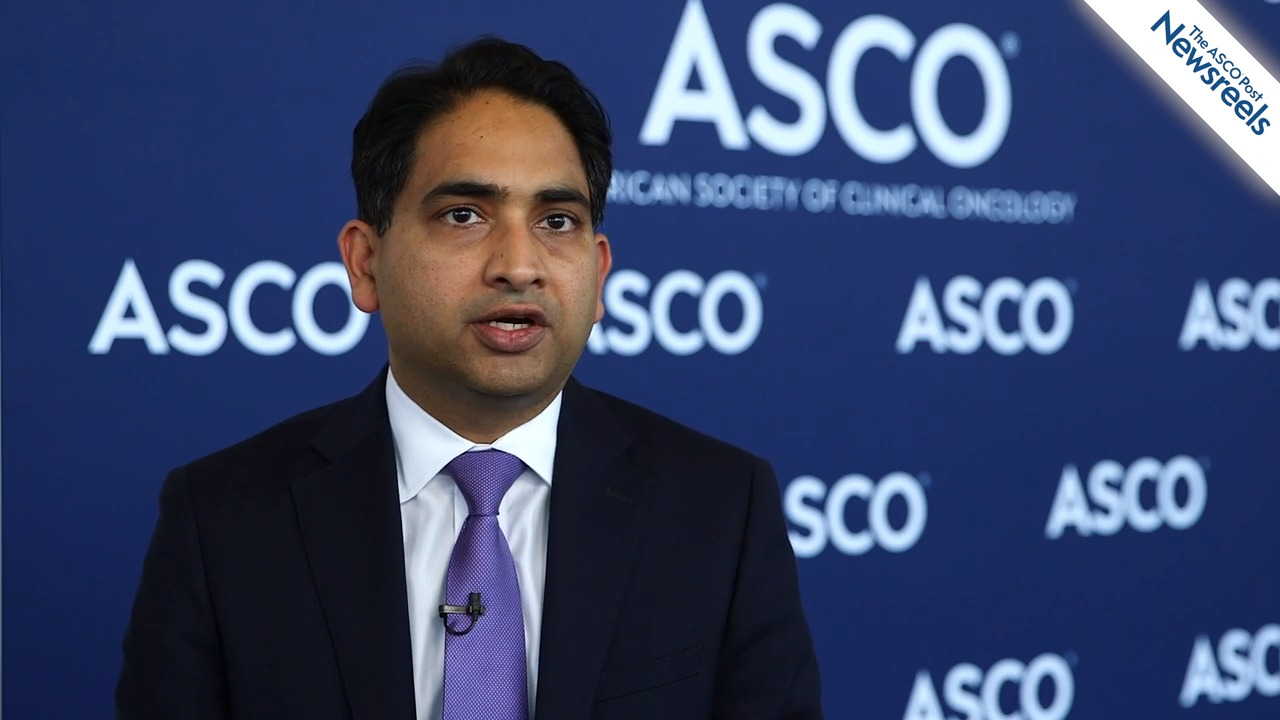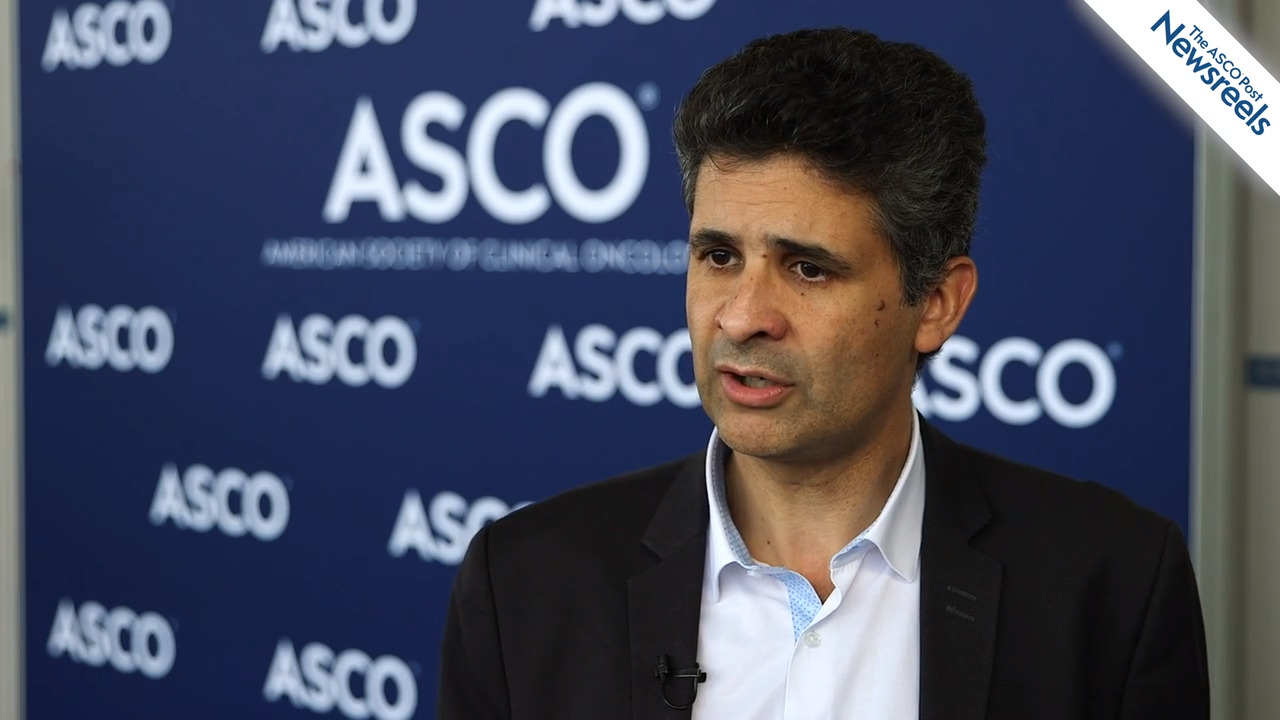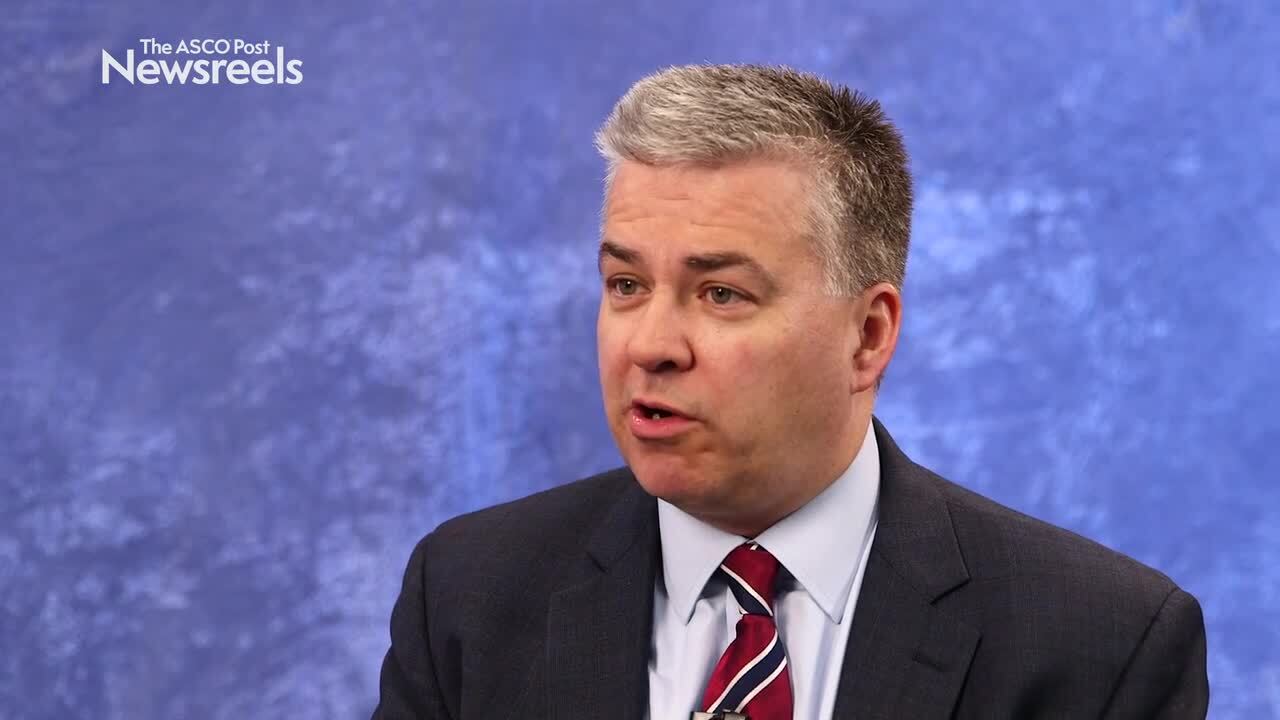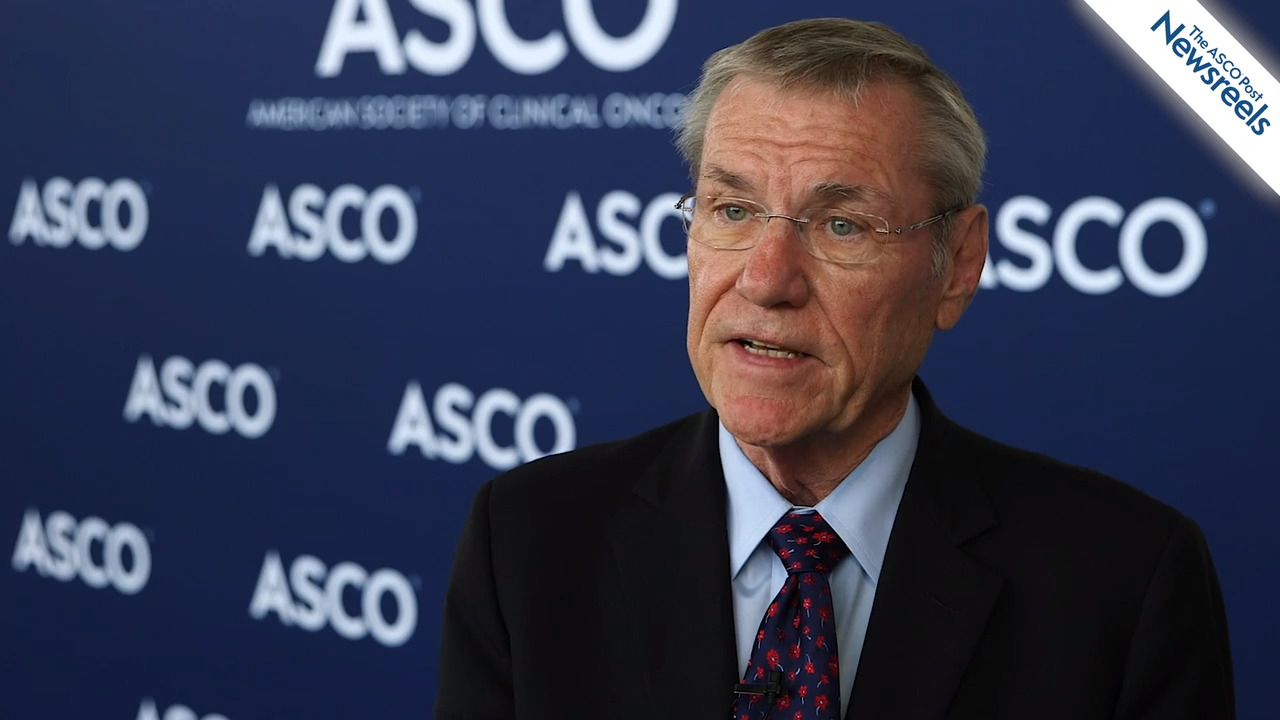Angela Lamarca, MD, PhD, on Biliary Tract Cancers: Active Symptom Control With Oxaliplatin and Fluorouracil
2019 ASCO Annual Meeting
Angela Lamarca, MD, PhD, of The Christie NHS Foundation Trust and the University of Manchester, discusses phase III findings from a multicenter study of active symptom control alone or active symptom control with oxaliplatin and fluorouracil for patients with locally advanced or metastatic biliary tract cancers previously treated with cisplatin and gemcitabine (Abstract 4003).
Manmeet S. Ahluwalia, MD, of the Taussig Center Institute, Cleveland Clinic, discusses phase II findings on the efficacy and immunogenicity of SurVaxM, a novel cancer vaccine targeting the tumor-specific antigen survivin in newly diagnosed glioblastoma (Abstract 2016).
Karim Fizazi, MD, PhD, of the Institut Gustave Roussy, University of Paris-Sud, discusses study findings showing that not only does darolutamide prolong metastasis-free survival, it maintains quality of life as well as delays worsening of pain and disease-related symptoms compared with placebo for patients with nonmetastatic castrate-resistant prostate cancer (Abstract 5000).
Panagiotis A. Konstantinopoulos, MD, PhD, of Dana-Farber Cancer Institute, discusses his phase II study on the response to avelumab in microsatellite-stable and -instable recurrent or persistent endometrial cancer with a polymerase epsilon mutation (Abstract 5502).
Michael A. Thompson, MD, PhD, of Advocate Aurora Health, discusses the implications of the revised diagnostic criteria for multiple myeloma, which removed patients at the highest risk of disease progression from the smoldering group, and a new model for smoldering disease that incorporates revised cutoffs for the previously used parameters (Abstract 8000).
Rowan T. Chlebowski, MD, PhD, of the Los Angeles BioMedical Research Institute at Harbor-UCLA Medical Center, discusses study findings from nearly 2 decades of data, which showed a 21% reduction in deaths from breast cancer among postmenopausal women who adhered to a low-fat diet (Abstract 520).





